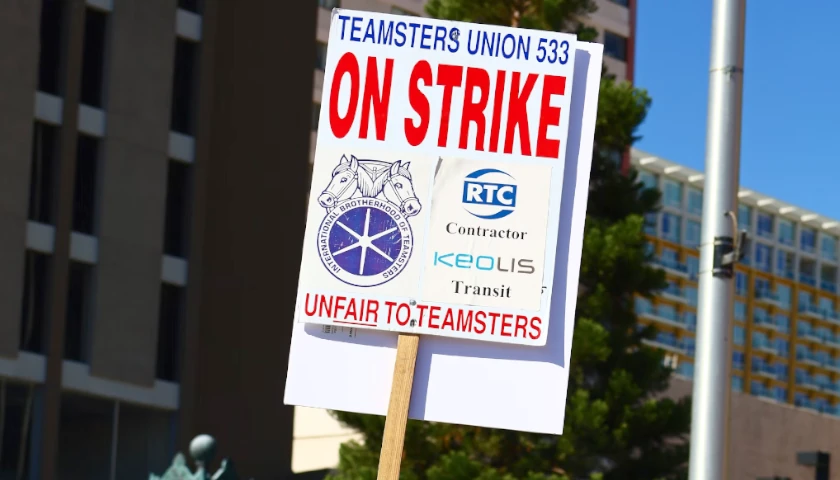According to a brochure distributed by Connecticut’s public-sector-labor coalition, Governor Ned Lamont (D) and the state’s unionized employees have negotiated contracts that will cost taxpayers plenty if ratified.
Wins for each unionized worker would include $3,500 in bonuses and and three yearly wage hikes of 2.5 percent, which would be made retroactive to summer of 2021. About two-thirds of union-affiliated employees would also get “step” raises; i.e., elevation to the next pay rate. These bonuses and salary gains would also factor into future pension payments.
The agreement would apply to the roughly 44,000 state workers who belong to the State Employees Bargaining Agent Coalition (SEBAC), an assemblage of 15 labor organizations. SEBAC is urging its members to approve the deal in the weeks ahead. The General Assembly must also affirm its acceptance for the contracts to take effect.
Connecticut’s state employees make $74,297 per year on average. Those of them who belong to unions have fared well in recent years when it comes to securing salary increases: One 3.5-percent wage hike was bestowed in 2019 and another was given in 2020. Thus, if the contracts negotiated by the Lamont administration are ratified, SEBAC-represented state workers will ultimately have gotten raises of over 15 percent in a five-year period. And workers who get step increases will have seen their earnings rise over 25 percent during that span.
Advocates for limited government are raising concern about the effect that these contracts will have on Nutmeggers’ tax burdens. The Hartford-based Yankee Institute has pointed out that more than a third of Connecticut’s budget is allotted to employee compensation. Ken Girardin, the institute’s research director, wrote in a policy brief that the contracts could become difficult to afford, given current economic developments.
“The state’s rosy revenue projections haven’t been updated since January, before all three major U.S. stock indices entered or approached bear market territory and oil prices spiked,” he observed. “The state’s jobs recovery has also shown signs of stalling out, as Connecticut had fewer private-sector jobs in January than it did in November or December. … This, of course, won’t be a concern for the SEBAC unions, since they’ll have a seemingly iron-clad commitment for bonuses and raises once the General Assembly blesses the deal. …After that, it’s the taxpayers’ problem.”
– – –
Bradley Vasoli is managing editor of The Connecticut Star. Follow Brad on Twitter at @BVasoli. Email tips to [email protected].





